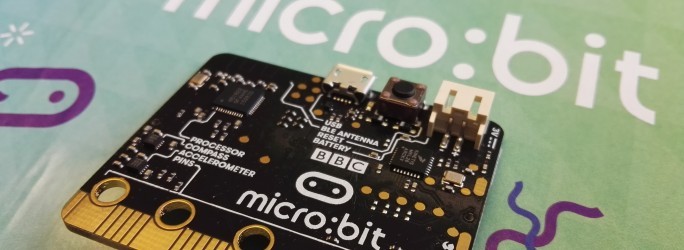Nearly 1m schoolchildren will start receiving BBC’s micro:bit computer today

In a ‘landmark moment’, the BBC’s micro:bit coding computer launches for Year 7 and 8 pupils across the UK as part of digital literacy initiative
Almost 1m school children across the UK will today receive their very own micro computer thanks to a “landmark” BBC initiative.
Every Year 7 student in England and Wales, Year 8 student in Northern Ireland and S1 student in Scotland will be handed, for free, a BBC micro:bit computer specially designed to help pupils learn to code.
The pocket-sized micro:bit is part of the BBC’s Make it Digital initiative, and aims to get schoolchildren and teachers alike of all abilities learn the basics of making computer programs by teaching them to code.
The initiative follows on from the BBC’s Micro programme that was introduced in the 1980s, and sees a partnership between the BBC and some of the world’s most notable technology companies such as ARM, Microsoft and Samsung.
Micro:bits, which are smaller than the size of a credit card and can be hooked up to a mobile app or accessed via the internet, will be delivered nationwide through schools and made available to home-schooled students over the course of the next few weeks. The students are able to keep their devices as their own, meaning they can work with the device for homework, in school holidays, and use it for more applications as their grasp on coding increases.
 The director-general of the BBC, Tony Hall, said: “The BBC micro:bit has the potential to be a seminal piece of British innovation, helping this generation to be the coders, programmers and digital pioneers of the future.”
The director-general of the BBC, Tony Hall, said: “The BBC micro:bit has the potential to be a seminal piece of British innovation, helping this generation to be the coders, programmers and digital pioneers of the future.”
The actual micro:bit itself is designed and created by ARM, one of the world’s biggest computer chip designers, with Barclays bank supporting the distribution and manufacturing of the devices.
The core code of the BBC micro:bit has been developed by researchers at Lancaster University, which says it will continue to support the micro:bit community as it grows.
Teachers are also being handed extra micro:bits as well as a wealth of teaching and lesson material so they can introduce micro:bits into the curriculum.
Sinead Rocks, head of BBC Learning, said: “The BBC micro:bit has seemingly limitless potential, especially when paired with other hardware, and we can’t wait to see what students will do with it. They’ve already come up with all kinds of ideas during testing and at events around the country – some ideas help solve some of life’s daily challenges, some could have business potential, and others are just great fun.
“Teachers have been quick to embrace it too, which is so important to the success of the project, and they have already made valuable additions to our online resources.”
Inside the box pupils will also get a USB cable to connect the micro:bit to a computer, a battery holder with two AAA batteries, some crocodile clips to connect to other devices and sensors, a buzzer that can be activated by the micro:bit, and a music jack cable that can be used with speakers or headphones.
Pupils and teachers will also get a quick start guide, alongside a more in-depth look at some project tutorials to help get users started.
 Both pupils and teachers are directed towards the BBC micro:bit website where they can program each element or feature of the micro:bit from a PC, tablet or mobile device. Android users already have a dedicated app for the device, with an iOS version coming out soon, according to the BBC.
Both pupils and teachers are directed towards the BBC micro:bit website where they can program each element or feature of the micro:bit from a PC, tablet or mobile device. Android users already have a dedicated app for the device, with an iOS version coming out soon, according to the BBC.
The website features a range of tutorials and resources, with projects including turning the micro:bit into a heart monitor or a virtual pet. Various coding editors, including Code Kingdoms Java Script editor, Microsoft’s Block Editor and TouchDevelop, are available on the website. Support for Python will also be arriving soon.
The BBC said that the micro:bit initiative has been a “digital literacy project on an unprecedented scale”, and that it will be a truly landmark moment for the BBC, its partners and children across the UK.